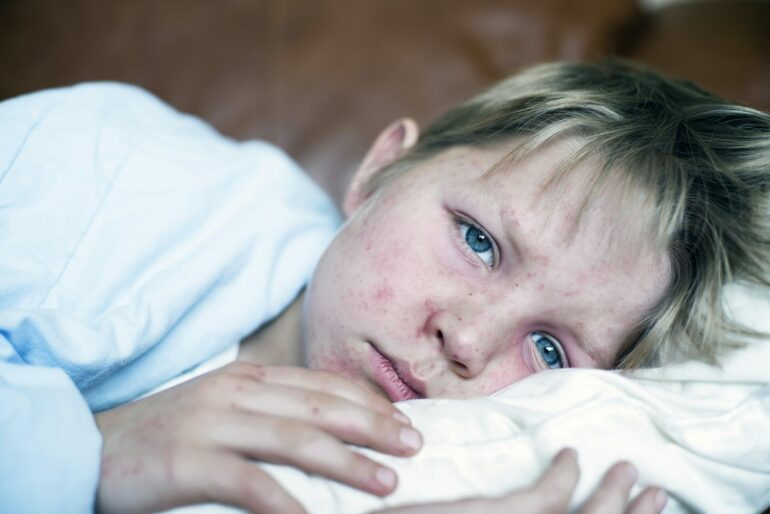“You don’t count your children until the measles has passed.” Dr. Samuel Katz, one of the pioneers of the first measles vaccine in the late 1950s to early 1960s, regularly heard this tragic statement from parents in countries where the measles vaccine was not yet available, because they were so accustomed to losing their children to measles.
I am a pediatrician and preventive medicine physician, and I have anxiously watched measles cases rise worldwide while vaccination rates have dropped since the early days of the COVID-19 pandemic due to disruptions in vaccine access and the spread of vaccine misinformation.
In 2022 alone, there were over 9 million measles cases and 136,000 deaths worldwide, an 18% and 43% increase from the year before, respectively. The World Health Organization warned that over half the world’s countries are at high risk of measles outbreaks this year.
The U.S. is no exception. The country is on track to have one of the worst measles years since 2019, when Americans experienced the largest measles outbreak in 30 years. As of mid-February 2024, at least 15 states have reported measles cases and multiple ongoing, uncontained outbreaks.
Measles is on the rise across the U.S. once again, despite being eliminated in 2000.
While this measles crisis unfolds, U.S. measles vaccination rates are at the lowest levels in 10 years. Prominent figures like the Florida surgeon general are responding to local outbreaks in ways that run counter to science and public health recommendations. The spread of misinformation and disinformation from anti-vaccine activists online further promotes misguided ideas that measles is not a serious health threat and measles vaccination is not essential.
However, the evidence is clear: Measles is extremely dangerous for everyone, and especially for young children, pregnant people and people with compromised immune systems. But simple and effective tools are available to prevent it.
Measles is a serious illness
Measles is one of the most deadly infectious diseases in human history. Before a vaccine became available in 1963, around 30 million people were infected with measles and 2.6 million people died from the disease every year worldwide. In the U.S., measles was responsible for an estimated 3 million to 4 million infections. Among reported cases, there were 48,000 hospitalizations, 1,000 cases of encephalitis, or brain swelling, and 500 deaths every year.
Measles is also one of the most contagious infectious diseases. According to the Centers for Disease Control and Prevention, up to 9 out of 10 people exposed to an infected person will become infected if they don’t have protection from vaccines. The measles virus can stay in the air and infect others for up to two hours after a contagious person has left the room. Measles can also hide in an unknowing victim for one to two weeks and sometimes up to 21 days…



